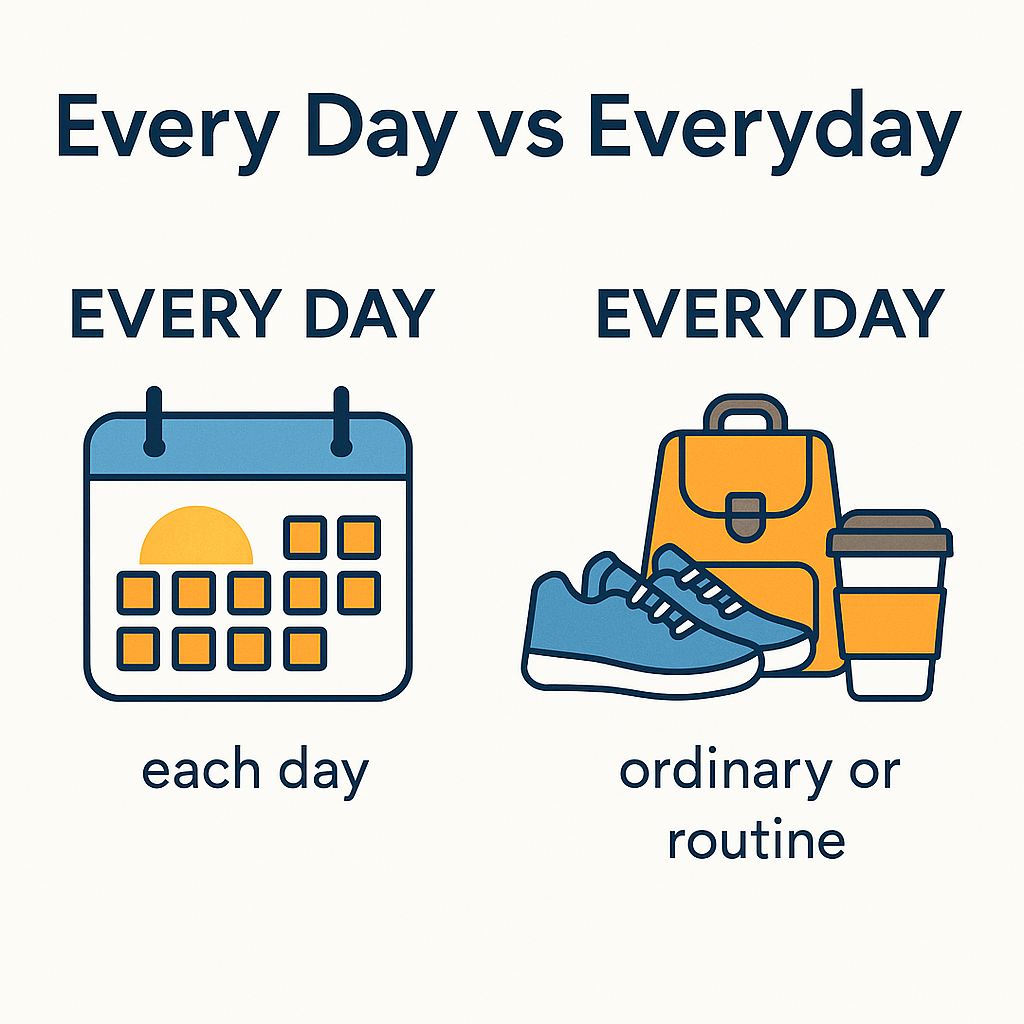Every Day vs Everyday

The confusion between every day vs everyday is common but understanding the distinction is important for clarity and correctness. These two expressions may sound the same, but they play different grammatical roles and convey different meanings.
Let’s explore the difference between every day and everyday, how to use them properly, and tips to help you remember which is which.
Grammatical Explanation of Every Day vs Everyday
- Every day (two words) is an adverbial phrase that means “each day.”
- It combines the adjective every and the noun day.
- It answers when something happens.
- Everyday (one word) is an adjective that means “common” or “ordinary.”
- It describes something that happens routinely or is typical.
Real-Life Examples of Every Day vs Everyday
✅ Correct Usage of Every Day:
- I walk my dog every day before work.
- She drinks a smoothie every day after the gym.
✅ Correct Usage of Everyday:
- Running errands is an everyday activity.
- Those shoes are perfect for everyday wear.
❌ Common Mistake:
- ✖ I go to the gym everyday.
(Should be: every day because it refers to “each day.”)
Common Mistakes
- Using “everyday” when you mean “each day”:
- ✖ “He calls me everyday.”
✔ Should be: “He calls me every day.”
- ✖ “He calls me everyday.”
- Forgetting “everyday” is an adjective:
- ✖ “She wears every day clothes.”
✔ Should be: “She wears everyday clothes.”
- ✖ “She wears every day clothes.”
Memory Tips
- Test it: If you can replace the phrase with “each day” and it still makes sense, use every day.
- “I take vitamins every day” → “I take vitamins each day” ✅
- One word = adjective: If you’re describing something (like an object or activity), use everyday.
Conclusion
While every day and everyday sound identical, their roles in a sentence are not. One refers to frequency, the other to familiarity. Use every day when talking about something that happens each day. Use everyday when describing something ordinary or routine.
Mastering this subtle difference sharpens your writing and helps you express ideas clearly and correctly.
For more commonly confused words, check out Too vs To or Lose vs Loss.
To dive deeper into everyday grammar, visit Merriam-Webster’s definition of “everyday”.